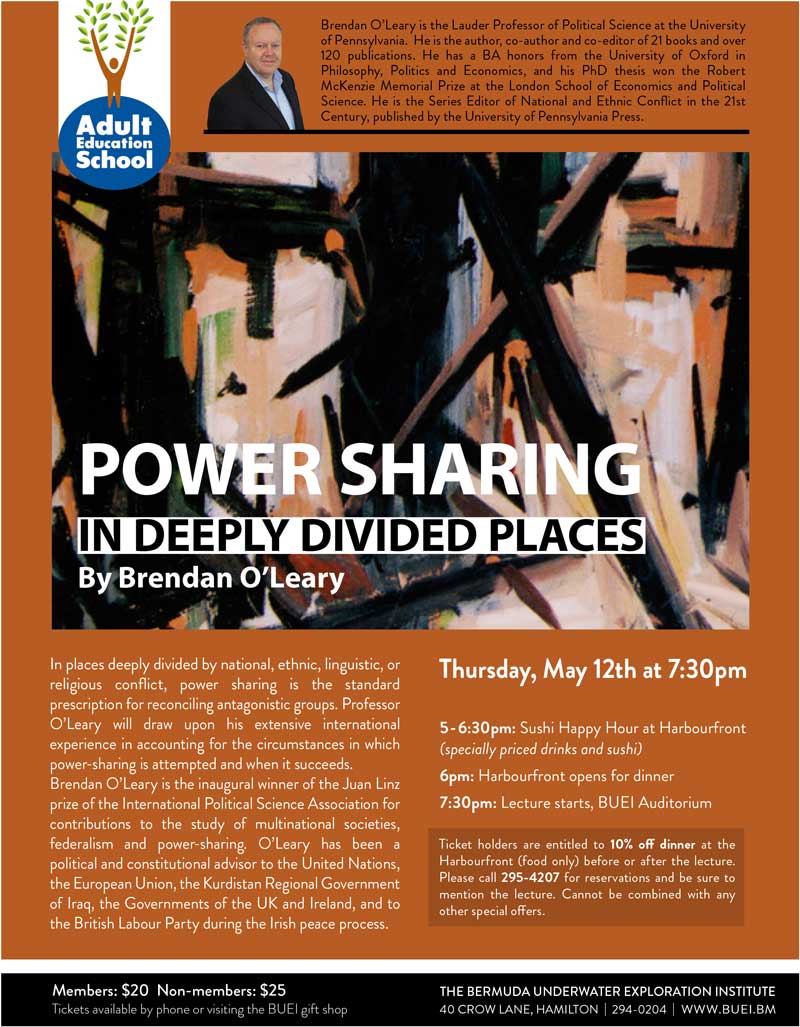“Power Sharing In Deeply Divided Places”
A lecture featuring Brendan O’Leary, the Lauder Professor of Political Science at the University of Pennsylvania, will be held at the BUEI Auditorium on Thursday, May 12 at 7.30pm. The lecture will cover the topic of “Power Sharing in Deeply Divided Places.”
The event flyer says, “Brendan O’Leary is the Lauder Professor of Political Science at the University of Pennsylvania. He is the author, co-author and co-editor of 21 books and over 120 publications.
“He has a BA honors from the University of Oxford in Philosophy, Politics and Economics, and his PhD thesis won the Robert McKenzie Memorial Prize at the London School of Economics and Political Science. He is the Series Editor of National and Ethnic Conflict in the 21st Century, published by the University of Pennsylvania Press.
“In places deeply divided by national, ethnic, linguistic, or religious conflict, power sharing is the standard prescription for reconciling antagonistic groups. Professor O’Leary will draw upon his extensive international experience in accounting for the circumstances in which power-sharing is attempted and when it succeeds.”
“Brendan O’Leary is the inaugural winner of the Juan Linz prize of the International Political Science Association for contributions to the study of multinational societies, federalism and power-sharing.
“O’Leary has been a political and constitutional advisor to the United Nations, the European Union, the Kurdistan Regional Government of Iraq, the Governments of the UK and Ireland, and to the British Labour Party during the Irish peace process.”
The presentation will get underway on Thursday, May 12 at 7.30pm, with a Sushi Happy Hour to be held at Harbourfront from 5.00pm to 6.30pm, with dinner opening at 6.00pm.
Tickets cost $20 for members and $25 for non-members, and are available by calling 294-0204 or visiting BUEI’s Oceans Gift Shop.
Read More About
Category: All



BUEI continues to impress with their guest lecturers and presenters.
Sharing power would be a wonderful thing to see more of in Bermuda. It would be worthwhile to highlight when that is in process or accomplished so we can all learn from it.
We see in the political arena very limited power sharing and even less in the not-for-profit arena with so many charities are built around the personalities of the founder or those that inherit the structure.
We hold very tight to the illusion of our ego that our transitional, fragmented and limited power is better than none.